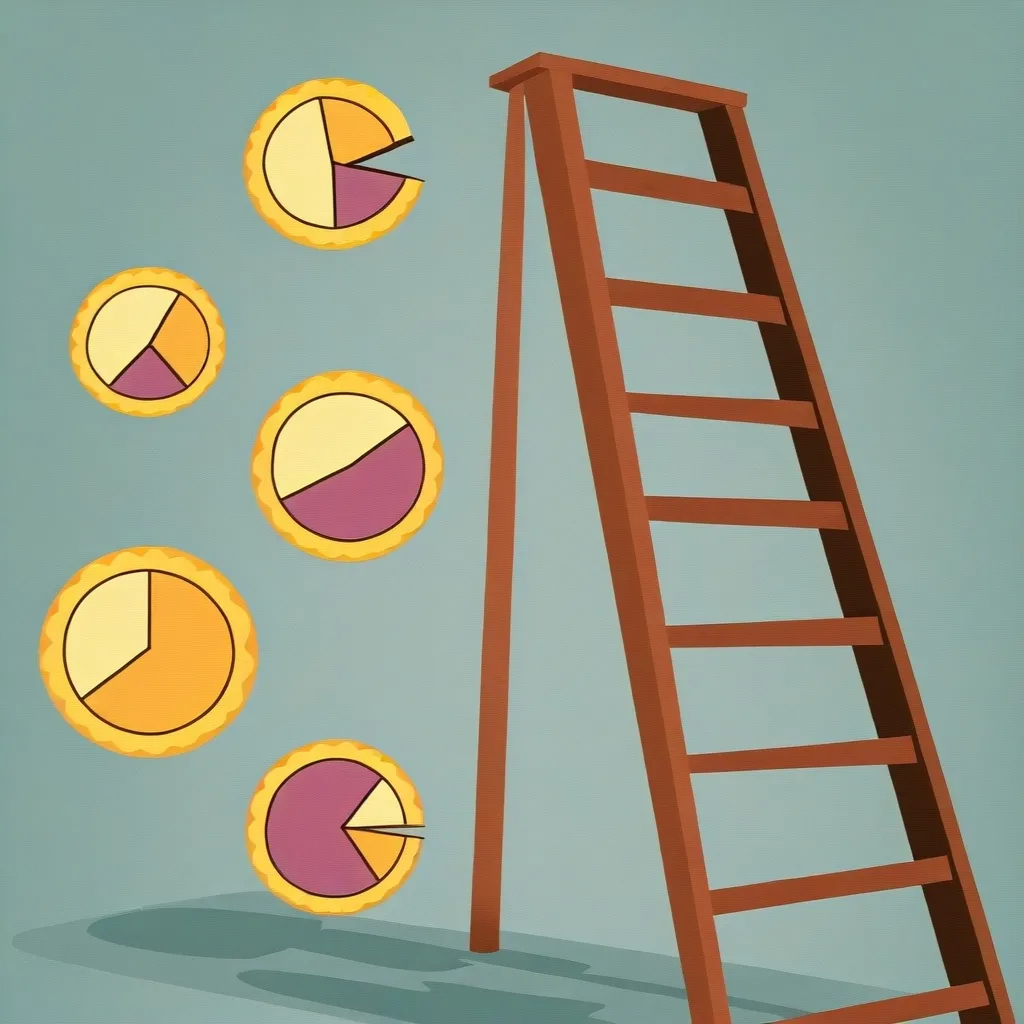Retirement Blunders: Don’t Let These Mistakes Drain Your Golden Years
Hey there, future retiree! Let’s chat about something super important - your retirement savings. You’ve been working hard all these years, and the last thing you want is to see your nest egg crumble because of a few avoidable mistakes. Trust me, I’ve seen it happen, and it’s not pretty.
So, grab a cup of coffee (or tea, if that’s your thing), and let’s dive into some common retirement pitfalls that could seriously mess with your plans for a cushy retirement.
First up, let’s talk about the “ostrich approach” to retirement planning. You know, sticking your head in the sand and hoping everything will magically work out. Spoiler alert: it won’t. I had a buddy who did this, and now he’s scrambling to catch up. Don’t be like my buddy.
Having a solid retirement plan is like having a GPS for your financial future. Without it, you’re basically driving blindfolded on a winding mountain road. Not fun, right? So, take some time to think about where you want to live, what kind of lifestyle you want, and how much it’ll all cost. Trust me, your future self will thank you.
Now, let’s talk about the “I’ll start saving tomorrow” syndrome. We’ve all been there, putting off saving because, well, retirement seems so far away. But here’s the thing - time is your best friend when it comes to saving. The earlier you start, the more time your money has to grow.
Think of it this way: If you start saving $500 a month at 25, you could end up with over a million bucks by 65. But if you wait until 35, you might only have about $600,000. That’s a huge difference! So, future millionaire, start saving now.
Okay, now let’s chat about investing. It’s not just about stuffing money under your mattress (though that would be pretty comfy). You’ve got to be smart about where you put your cash. Some folks play it too safe, while others go all-in on risky investments. Neither extreme is great.
Remember the dot-com bubble? I knew a guy who put all his money in tech stocks. When the bubble burst, poof! There went his savings. Don’t be that guy. Spread your investments around, like you’re making a financial smoothie. A bit of this, a bit of that - you get the idea.
Here’s a biggie - not taking advantage of employer matching. If your company offers to match your 401(k) contributions, that’s basically free money! It’s like your boss is saying, “Hey, here’s some extra cash for your retirement.” Don’t leave that money on the table. It’s yours for the taking!
Now, let’s talk about something I like to call the “champagne taste on a beer budget” syndrome. You know, when you start earning more and suddenly think you need that fancy car or designer wardrobe. I get it, it’s tempting. But if you’re not careful, you could end up with a lifestyle you can’t sustain in retirement.
Try this instead: When you get a raise, bump up your savings rate. You’ll still have some extra cash to play with, but you’ll also be setting yourself up for a sweeter retirement. Win-win!
Here’s a tricky one - selling assets when the market’s down. It’s like panic-selling during a sale. You wouldn’t do that at the mall, so don’t do it with your retirement savings. When the market takes a nosedive, it’s natural to want to sell. But if you can, hold tight. The market has a way of bouncing back.
Speaking of spending, let’s chat about the retirement spending spree. You’ve worked hard, you’ve saved up, and now it’s time to live it up, right? Well, yes and no. It’s great to enjoy your retirement, but you’ve got to be smart about it.
Try this: Make a budget that covers your essentials first. Then, set aside some fun money for trips, hobbies, or spoiling the grandkids. This way, you can have your cake and eat it too - just maybe not the whole bakery.
Now, let’s talk about something that sneaks up on a lot of folks - inflation. It’s like a sneaky thief, slowly eroding the value of your money. If you’re not careful, what seems like a hefty retirement fund now might not stretch as far as you think in 20 or 30 years.
To fight back against inflation, consider investing in things that tend to keep pace with or beat inflation. Your financial advisor can help you figure out the best strategy for your situation.
Here’s another biggie - underestimating healthcare costs. Medicare is great, but it doesn’t cover everything. And let’s face it, as we get older, we tend to need more medical care. It’s just a fact of life.
Don’t get caught off guard by surprise medical bills. Consider setting aside a chunk of your savings specifically for healthcare costs. Or look into insurance options that can help cover what Medicare doesn’t. Your future self (and your wallet) will thank you.
Now, let’s chat about Social Security. It’s not just about signing up as soon as you’re eligible. Timing is everything when it comes to Social Security benefits. If you start collecting early, your monthly checks will be smaller. But if you can wait, you could end up with a bigger payout.
For example, if you’re set to get $2,000 a month at full retirement age but decide to collect at 62, you might only get $1,500. Over 20 years, that’s a difference of $120,000! That’s a lot of extra vacations or grandkid-spoiling money.
Here’s something a lot of folks forget about - updating their estate documents. I know, it’s not the most exciting topic. But trust me, it’s important. Your will, trusts, and beneficiary designations need to keep up with your life changes.
Imagine if you had a will from 20 years ago, before you had kids or grandkids. Without updating it, your wishes might not be carried out the way you want. So, dust off those documents and give them a refresh every few years.
Now, let’s talk about turning your retirement savings into income. It’s not as simple as just withdrawing money willy-nilly. You need a strategy, or you could end up with a hefty tax bill or run out of money too soon.
For instance, converting a traditional IRA to a Roth IRA might seem like a good idea, but if you’re not careful about when and how you do it, you could end up paying a lot in taxes. It’s worth chatting with a financial advisor to figure out the best way to turn your nest egg into a steady income stream.
Speaking of taxes, they don’t disappear when you retire. In fact, tax planning becomes even more important. You might be in a different tax bracket in retirement, which could affect how much of your savings you actually get to keep.
Consider working with a tax advisor to figure out the best strategy for your situation. They might suggest things like converting some of your retirement accounts to Roth IRAs or taking distributions in a way that minimizes your tax bill.
Here’s a big no-no - cashing out your retirement accounts early. I know it can be tempting if you’re in a tight spot, but try to resist. Not only will you pay penalties and taxes, but you’ll also miss out on all that potential growth.
Let’s say you cash out a $50,000 401(k) at 40. After taxes and penalties, you might only end up with $30,000. But if you’d left that money alone, it could have grown to $100,000 or more by the time you retire. That’s a big difference!
Now, let’s talk about something that’s not fun to think about, but super important - long-term care. The average cost of a nursing home is over $9,000 a month. That’s more than some people’s entire retirement savings!
Planning ahead for these costs is crucial. You might want to look into long-term care insurance or set aside a portion of your savings specifically for healthcare needs. It’s not pleasant to think about, but it’s better to be prepared.
Finally, let’s chat about being ready for retirement surprises. Life has a way of throwing curveballs, and retirement is no exception. You might need to retire earlier than planned due to health issues or job loss. Or maybe you’ll decide you want to start a second career or move to a different country.
Having a flexible plan and some extra savings can help you roll with these punches. An emergency fund can be a lifesaver if you need to cover unexpected expenses without dipping into your retirement savings.
So there you have it, folks. These are some of the biggest retirement blunders I’ve seen people make. But here’s the good news - now that you know about them, you can avoid them! With some smart planning, wise investing, and a bit of flexibility, you can set yourself up for a retirement that’s as golden as you’ve always dreamed.
Remember, retirement isn’t just about having enough money. It’s about creating a life you love and can sustain. So start planning, start saving, and most importantly, start dreaming about the awesome retirement you’re going to have. You’ve got this!






